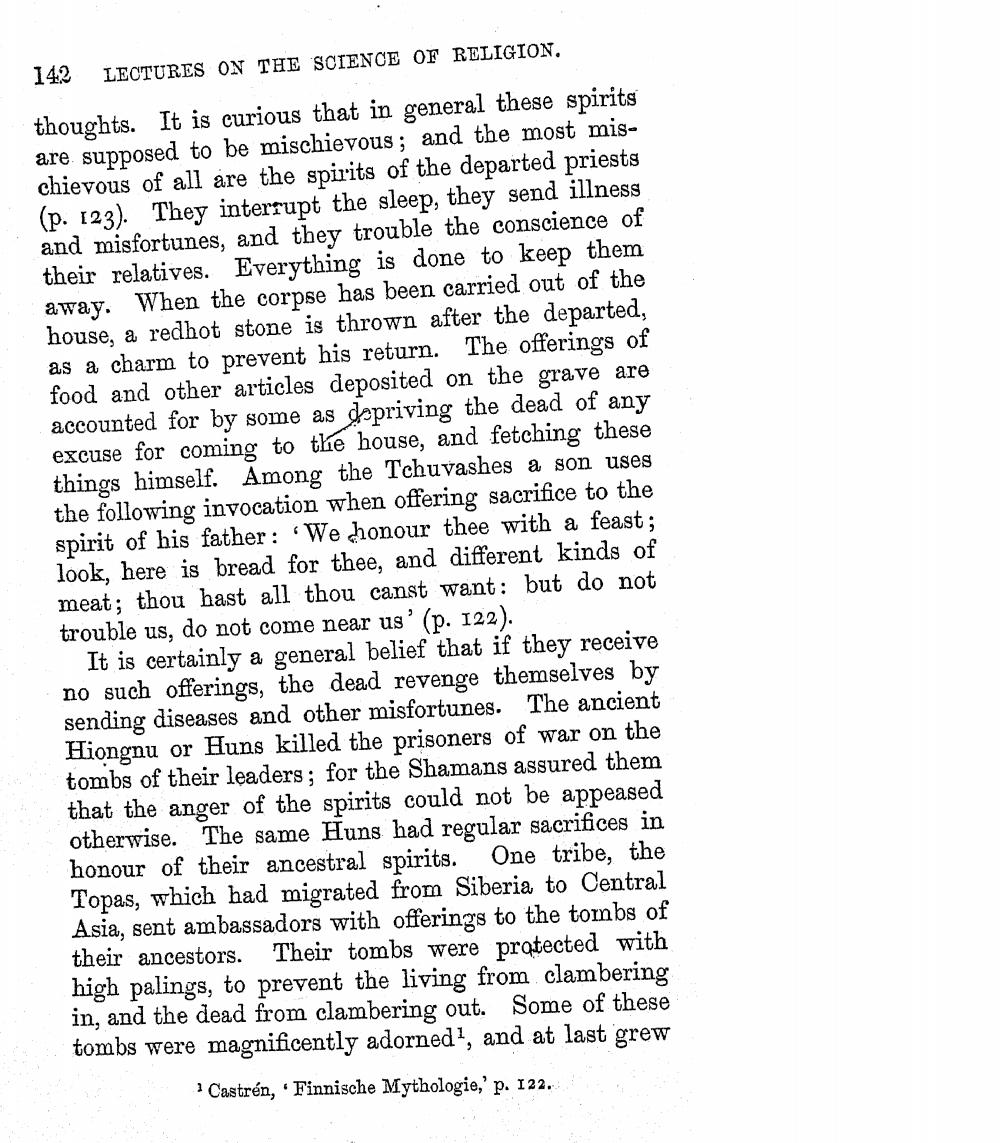________________
142 LECTURES ON THE SCIENCE OF RELIGION. thoughts. It is curious that in general these spirits are supposed to be mischievous; and the most mischievous of all are the spirits of the departed priests (p. 123). They interrupt the sleep, they send illness and misfortunes, and they trouble the conscience of their relatives. Everything is done to keep them away. When the corpse has been carried out of the house, a redhot stone is thrown after the departed, as a charm to prevent his return. The offerings of food and other articles deposited on the grave are accounted for by some as Japriving the dead of any excuse for coming to the house, and fetching these things himself. Among the Tchuvashes a son uses the following invocation when offering sacrifice to the spirit of his father: We honour thee with a feast; look, here is bread for thee, and different kinds of meat; thou hast all thou canst want: but do not trouble us, do not come near us' (p. 122).
It is certainly a general belief that if they receive no such offerings, the dead revenge themselves by sending diseases and other misfortunes. The ancient Hiongnu or Huns killed the prisoners of war on the tombs of their leaders; for the Shamans assured them that the anger of the spirits could not be appeased otherwise. The same Huns had regular sacrifices in honour of their ancestral spirits. One tribe, the Topas, which had migrated from Siberia to Central Asia, sent ambassadors with offerings to the tombs of their ancestors. Their tombs were protected with high palings, to prevent the living from clambering in, and the dead from clambering out. Some of these tombs were magnificently adornedo, and at last grew
Castrén, · Finnische Mythologie,' p. 122.




